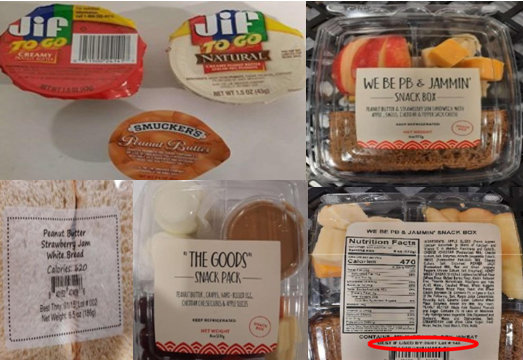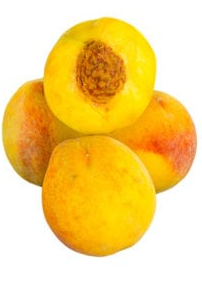The FDA reported that A G Specialty Foods Inc (Happy Valley, Oregon) recalled perishable products. The recall includes “The Goods” Snack Pack, We Be PB & Jammin’ Snack Box, Peanut Butter Strawberry Jam Old Fashioned White Bread, and Peanut Butter Strawberry Jam White Bread containing the Jif Creamy Peanut Butter, Jif Creamy Peanut Butter To Go 1.5oz cups, Jif Natural Creamy Peanut Butter To Go 1.5oz cups, and Smuckers Peanut Butter 3/4oz cups due to potential Salmonella contamination. The recalled products have a 7-14 days shelf life and were distributed in Oregon and Washington to distributors, retailers, and food service companies from 05/11/2022 through 05/23/2022. No illnesses or deaths have been reported in consuming A G Specialty Foods products. A G Specialty Foods, Inc. initiated this recall because it contains the Jif Creamy Peanut Butter and Jif Creamy Peanut Butter To Go 1.5oz cups, Jif Natural To Go 1.5oz cups, and Smuckers Peanut Butter 3/4oz cups that J.M. Smucker Co. recalls because of an outbreak of Salmonella. @ https://www.fda.gov/safety/recalls-market-withdrawals-safety-alerts/g-specialty-foods-inc-issues-voluntary-recall-food-products-containing-jif-and-smuckers-peanut?utm_medium=email&utm_source=govdelivery




